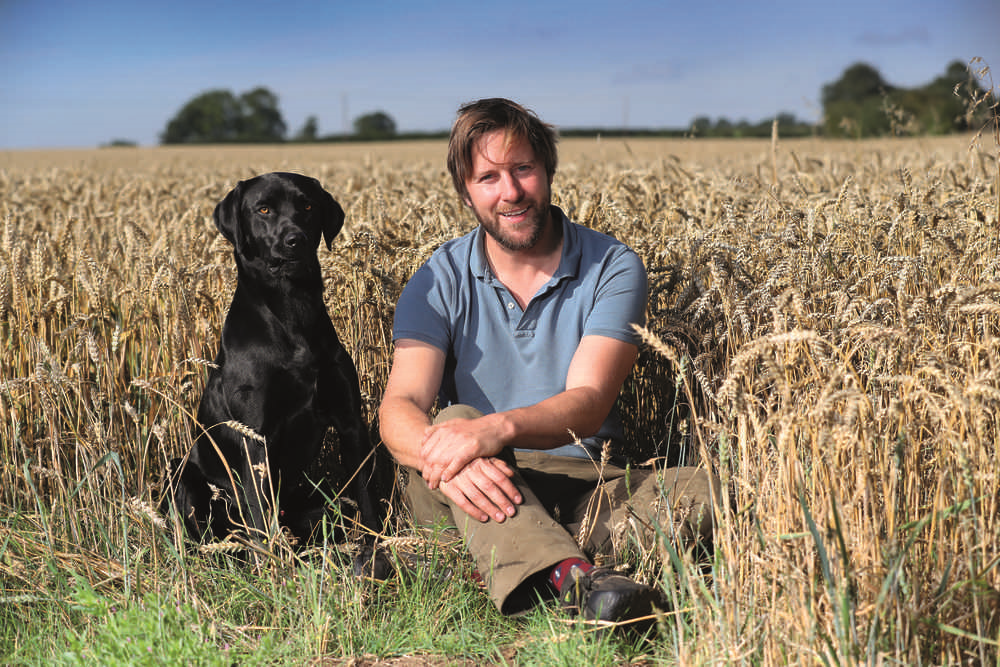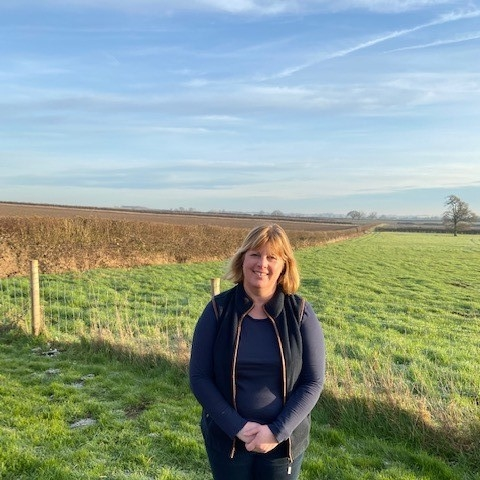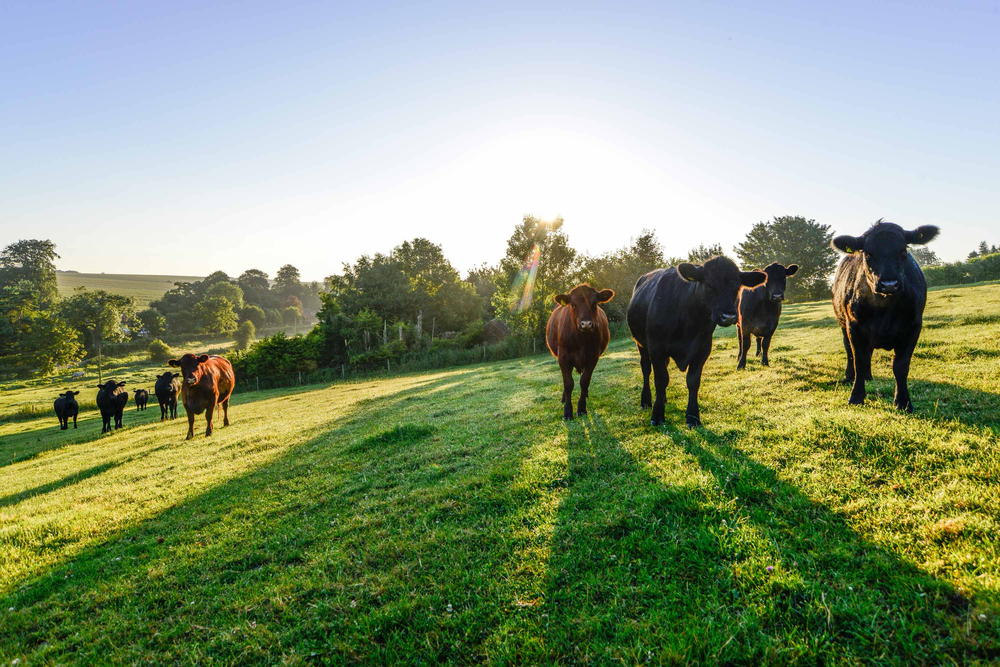This includes hundreds of farmers backing the NFU’s net zero by 2040 ambition by signing up for its online pledge map.
This is being used to celebrate the action taken on farms to help tackle climate change during and after COP26 – the UN Climate Change Conference in Glasgow in November.
Tom Martin is one of the many NFU East Anglia members who has taken the pledge, setting out what he hopes to achieve on his farm near Peterborough.

“As farmers we have to be masters of our own destiny. It’s much better to be leaders in a certain direction than to be pushed. It’s our societal responsibility but also something I would want and expect us to be passionate about,” he said.
Every contribution will be important
As the NFU made clear when launching its net zero by 2040 commitment, it is a national aspiration for the entire industry, not an expectation that every farm can reach net zero.
Each farm will start the journey to net zero from a different place and will need a unique action plan. Every contribution will be important.
For Tom, improving soil health is a key priority. Measures introduced include increasing use of cover crops and reducing tillage, as well as using artificial fertiliser more efficiently. Grazing sheep make an important contribution as well.
He believes it was important to use a carbon calculator at the start of his net zero journey.
“At the end of the day, if you can’t measure it, you can’t manage it,” he said.
“For instance, I knew that my artificial fertiliser was a considerable contributor to our carbon footprint but I hadn’t realised quite how much. If, as a result of knowing that we can use artificial fertiliser more efficiently then that’s a good thing.”
There are three pillars supporting the NFU’s net zero ambition, under the headings of improving farming’s productive efficiency, improving land management and changing use to capture more carbon, and thirdly boosting renewable energy and the wider bioeconomy. (Read the full report here).
"We must, and can do more"
As NFU President Minette Batters said when launching the NFU’s net zero report: “Agriculture is uniquely placed to be part of the solution, as both an emissions source and a sink. As farmers we have a special responsibility to protect carbon reserves already in our soils and vegetation. But we must, and we can, do more.”

Bedfordshire farmer, and county vice chair, Freya Morgan is another NFU East Anglia member who has taken the net zero pledge.
“Agriculture contributes about 10% of the UK’s greenhouse gas emissions so it’s important we play our part in working towards net zero. It’s crucial we measure our carbon footprint now in order to see where we are. We then have something to work towards bringing it down,” she said.
Freya farms about 2,500 arable acres, a combination of owned and rented land, with four share farming agreements and contract farming as well, operating within an eight mile radius of the home farm.
“We need to get the landowners that we farm for involved and on-board with the net zero challenges,” she said.
Using new technology will help
Freya believes technology will help agriculture reduce its carbon emissions. Her son Joshua, 24, is now working within the business and is looking at areas such as tractor fuel efficiency and shallow cultivations. She also believes the industry needs to highlight the positive steps it is taking.
“We are very visible in our day-to-day work and people notice what we are doing. I spoke to a Bedfordshire group on sustainability, with County Adviser Oliver Rubinstein, including explaining to them about variable seed rate application and variable fertiliser. We’ve been doing that for quite a while now but the public don’t know .
“They see us out in the fields on a tractor and they are fascinated to discover we are already using technology to help with some of these issues,” she said.
“As a business we have to aim for net zero, but we also need to communicate with the public about what we are doing to help with climate change.”
She agrees with the NFU that a one size fits all approach will not work. For example, establishing cover crops is difficult on the farm’s heavy clay soil and she does not feel direct drilling is an option, for the same reason.
“We are looking at other areas to achieve our net zero. It’s finding things that are practicable and that work. We are doing a lot of research at the moment and talking to many different people,” she said.

Essex farmer John Torrance, chair of the NFU regional dairy board, has seen his sector singled out for criticism because of its supposed impact on climate change and its contribution to global warming.
Improving productivity is key
With dairy so much in the public eye, he was happy to sign the NFU’s net zero pledge, joining the collective effort to reduce emissions.
“We’re always seen as the bad cop and we have to try and bring our emissions down. I think we can achieve that,” he said.
“On my farm, productivity has the most potential, reducing wastage and getting more from less from the cattle, without affecting animal welfare. For instance, by reducing antibiotic use we’re cutting the amount of milk we have to waste.
“We have moved away from urea fertilister, only using Nitram, and we are utilising our own muck and slurry to reduce the amount of fertiliser we’re using.”
John feels a potential game changer is the arrival of methane inhibitors, methane-reducing feed additives and supplements that may cut cattle’s methane emissions by between 30% to 70%.
“That would be a massive step in the right direction,” he said.
“We’ve also applied to participate in a trial with Rothamsted, looking at collecting data on methane emissions.
“Our biggest problem in agriculture is we have very little data about on-farm emissions. As an industry we need much more information on that.”
